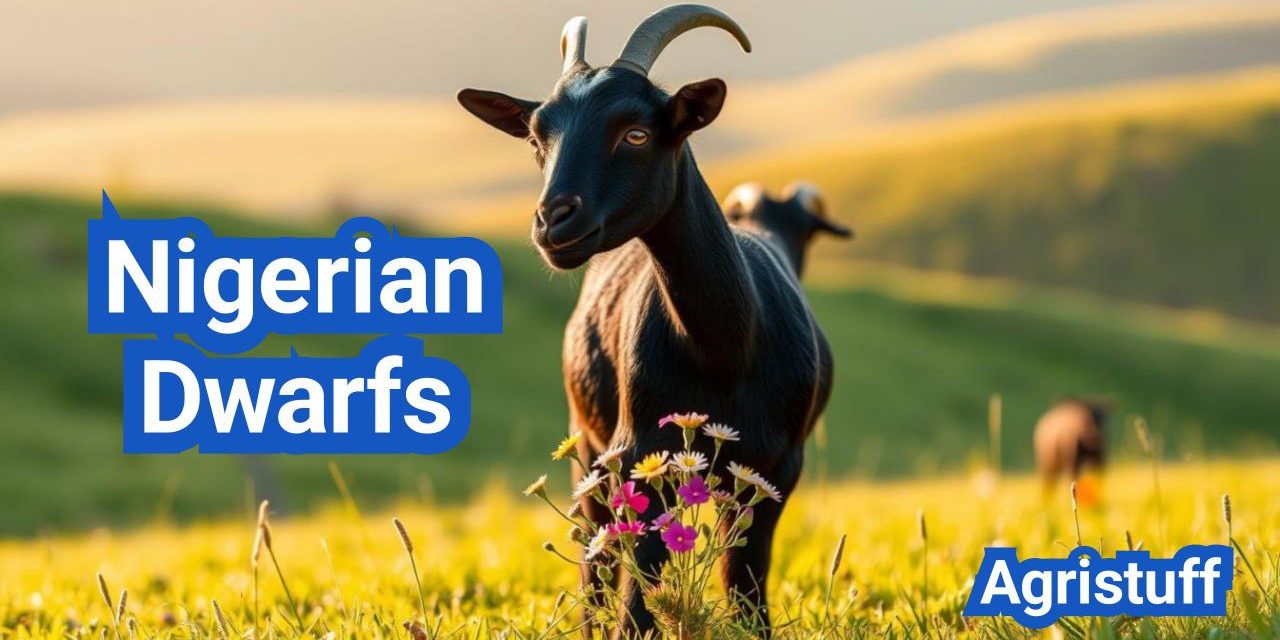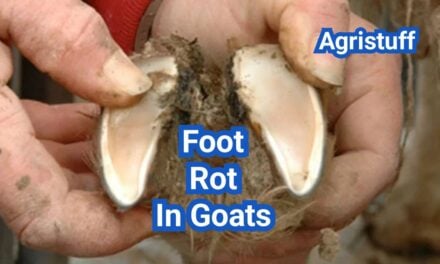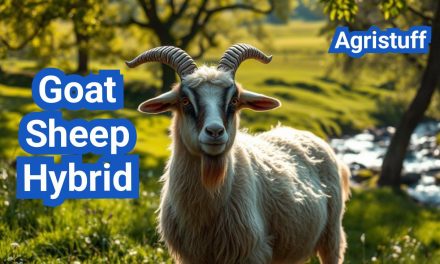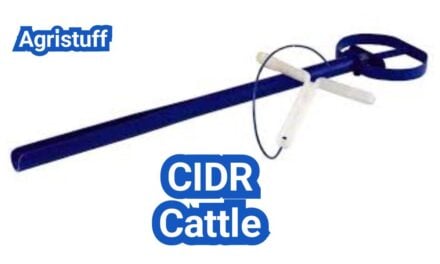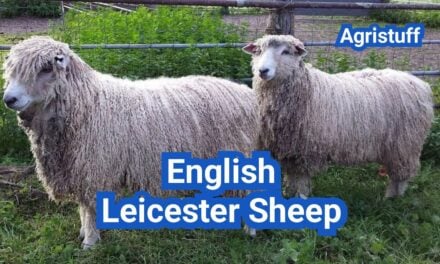The Nigerian Dwarf goat ( Nigerian Dwarfs ) is a popular choice for small-scale goat dairy farming due to its compact size and high milk production. Originating in West Africa, these goats have been bred in the United States for their dairy capabilities and friendly nature.
They are an ideal choice for those looking for a miniature dairy goat breed that can provide a significant amount of milk. With proper Nigerian Dwarf goat care, these goats can thrive and provide a bountiful milk supply.
Key Takeaways
- Compact size ideal for small-scale dairy farming
- High milk production despite their small size
- Friendly nature makes them a great companion
- Originated in West Africa, bred in the United States
- Requires proper care for optimal milk supply
Meet the Nigerian Dwarf Goat: A Miniature Marvel
Originating in West Africa, the Nigerian Dwarf goat has become a popular choice for small-scale dairy farming. These goats are known for their compact size and high milk production, making them an attractive option for homesteaders and small farmers.
Origins and History of the Breed of Nigerian Dwarfs
The Nigerian Dwarf goat has its roots in West and Central Africa, primarily in coastal countries with humid, sub-humid, or savanna climates. They were later developed in the United States as a distinct dairy breed. Their history is marked by adaptation to various environments, contributing to their hardiness and versatility.
Recognition as an Official Dairy Breed of Nigerian Dwarfs
The Nigerian Dwarf goat was officially recognized as a dairy breed by the American Goat Society in 1976. This recognition was a significant milestone, acknowledging their value in dairy production. The International Dairy Goat Registry also plays a crucial role in maintaining breed standards.
| Characteristic | Description |
|---|---|
| Origin | West and Central Africa |
| Recognition Year | 1976 by American Goat Society |
| Primary Use | Dairy Production |
Physical Characteristics of Nigerian Dwarfs

The Nigerian Dwarf breed is characterized by its small stature and diverse physical attributes, making them a unique and appealing choice for dairy goat enthusiasts. Understanding their physical characteristics is essential for identifying and caring for these miniature marvels.
Size and Weight Specifications of Nigerian Dwarfs
Nigerian Dwarf goats are notably small, typically weighing between 20-40 kg (44-88 lbs) and standing between 40-60 cm (16-24 inches) tall at the shoulder. Their compact size makes them an ideal choice for small farms or homesteads where space is limited. Despite their small stature, they are robust and sturdy, capable of thriving in various environments.
Coat Colors and Patterns of Nigerian Dwarfs
One of the distinguishing features of Nigerian Dwarf goats is their varied coat colors and patterns. They can be found in a wide range of colors, including white, black, brown, and various shades of red and tan. Their coats can also display different patterns, such as spotted, striped, or solid colors, adding to their visual appeal and individuality.
Distinctive Features of Nigerian Dwarfs
Nigerian Dwarf goats have several distinctive features that set them apart from other dairy goat breeds. Their small size, combined with their large eyes and ears, gives them a particularly endearing appearance. Additionally, their horns, if present, are typically small and curved, adding to their unique charm. Their agile nature and robust health also make them a joy to care for and manage.
In summary, the physical characteristics of Nigerian Dwarf goats, including their size, coat colors, and distinctive features, make them a popular and practical choice for many dairy goat keepers. Their compact size and varied appearance ensure that they remain a beloved breed among homesteaders and dairy enthusiasts alike.
Why Choose Nigerian Dwarfs for Your Homestead
The compact size and friendly nature of Nigerian Dwarf goats make them a great choice for many homesteaders. These miniature dairy goats are not only efficient in terms of space but also offer a range of benefits for small farms.
Space Efficiency for Small Farms of Nigerian Dwarfs
Nigerian Dwarf goats are ideal for small farms due to their compact size. They require less space compared to larger dairy goat breeds, making them perfect for homesteaders with limited land. Some key advantages include:
- Less land required for grazing and housing
- Lower fencing costs due to their small size
- Easier to manage and handle
Temperament and Personality Traits of Nigerian Dwarfs
Nigerian Dwarfs are known for their friendly and social nature. They are highly interactive and can form strong bonds with their owners. Their temperament makes them:
- Excellent pets for families
- Easy to train and handle
- Compatible with other farm animals
Versatility as Pets and Production Animals
One of the standout features of Nigerian Dwarf goats is their versatility. Not only do they serve as loving pets, but they are also productive dairy animals. They provide:
- High-quality milk rich in butterfat
- A sustainable source of dairy for homemade products
- A fun and educational experience for families
In conclusion, Nigerian Dwarf goats offer a unique combination of space efficiency, friendly temperament, and dairy production capabilities, making them an excellent choice for homesteaders looking to incorporate dairy farming into their small-scale operations.
Nigerian Dwarfs: Dairy Production Powerhouses

The Nigerian Dwarf breed is renowned for its exceptional dairy production, making it an attractive choice for dairy enthusiasts. Despite their compact size, these goats are capable of producing significant amounts of high-quality milk.
Milk Yield Expectations of Nigerian Dwarfs
Nigerian Dwarf goats are known for their impressive milk production relative to their size. On average, they produce between 1 to 2 quarts of milk per day. While this may be less than larger dairy breeds, their milk is rich in butterfat, making it ideal for producing cheese, butter, and other dairy products.
The consistency of their milk production is a significant advantage for dairy farmers. Nigerian Dwarfs are known to be reliable producers, providing a steady supply of milk throughout their lactation cycle.
Butterfat Content and Milk Quality of Nigerian Dwarfs
One of the standout features of Nigerian Dwarf milk is its high butterfat content, typically ranging between 6% to 10%. This rich, creamy milk is perfect for crafting artisanal cheeses and butters, commanding a premium price in the market.
Key characteristics of Nigerian Dwarf milk include:
- High butterfat content
- Rich, creamy texture
- Ideal for cheese and butter production
Lactation Cycles and Duration of Nigerian Dwarfs
Nigerian Dwarf goats have a relatively long lactation period, typically lasting around 8 to 10 months. Their lactation cycles can be managed to provide a consistent milk supply throughout the year with proper breeding and kidding strategies.
Understanding the lactation cycles of Nigerian Dwarfs is crucial for maximizing their dairy production potential. By managing their breeding and milking schedules effectively, dairy farmers can enjoy a steady supply of high-quality milk.
Setting Up Your Nigerian Dwarf Goat Habitat
A well-designed habitat is crucial for the well-being and safety of Nigerian Dwarf goats. Providing the right environment ensures their health and productivity.
Space Requirements and Housing Options
Nigerian Dwarf goats need adequate space to move around. A minimum of 10 square feet per goat is recommended for shelter, with additional space for outdoor areas. Housing can range from simple shelters to more complex barn setups, depending on the climate and available resources.
When considering housing options, it’s essential to ensure that the structure protects the goats from extreme weather conditions and predators. Ventilation is also crucial to prevent respiratory issues.
Fencing Considerations of Nigerian Dwarfs
Fencing is a critical aspect of Nigerian Dwarf goat habitat setup. The fencing should be sturdy and at least 4 feet high to prevent escape and predation. Materials like woven wire or electric fencing are effective options.
“Fencing for goats should be considered an investment in their safety and your peace of mind.”
Creating a Safe and Comfortable Environment
To create a comfortable environment, ensure that the habitat is clean, dry, and free from hazards. Bedding like straw or sand can help keep the area dry and comfortable for the goats.
| Habitat Feature | Recommendation |
|---|---|
| Shelter Space | Minimum 10 sq. ft. per goat |
| Fencing Height | At least 4 feet |
| Bedding Material | Straw or Sand |
By focusing on these key aspects, you can create a thriving habitat for your Nigerian Dwarf goats, ensuring their health and happiness.
Essential Equipment for Nigerian Dwarf Owners

Owning Nigerian Dwarf goats means having the necessary equipment to keep them healthy and thriving. To provide the best care, owners need to invest in several key pieces of equipment.
Feeding Equipment of Nigerian Dwarfs
Nigerian Dwarf goats require sturdy, easy-to-clean feeding equipment. This includes feeding troughs that are designed to minimize waste and prevent the goats from getting their heads stuck. Hay feeders and grain buckets are essential for managing their diet effectively.
Milking Supplies of Nigerian Dwarfs
For those planning to milk their Nigerian Dwarf goats, having the right milking supplies is crucial. This includes a milking stand to keep the goat secure and comfortable during milking, as well as milking machines or hand milking equipment. Proper sanitation is key, so milk storage containers and cleaning supplies are also necessary.
Grooming and Health Care Tools of Nigerian Dwarfs
Regular grooming is vital for the health and well-being of Nigerian Dwarf goats. Owners will need grooming tools like brushes, hoof pickers, and clippers. Additionally, having a first aid kit on hand is essential for addressing any health issues that may arise.
By investing in the right equipment, Nigerian Dwarf goat owners can ensure their animals lead healthy, happy lives.
Feeding Your Nigerian Dwarfs Properly

Proper nutrition is crucial for the health and productivity of Nigerian Dwarf goats. These miniature dairy goats require a balanced diet that includes high-quality forage, grains, and minerals to maintain their overall health and optimize their milk production.
Daily Nutritional Requirements of Nigerian Dwarfs
Nigerian Dwarf goats have specific daily nutritional needs that must be met to ensure their health and productivity. They require a diet rich in fiber, with a balance of protein, energy, and minerals. The quality and quantity of their feed can significantly impact their milk yield and overall well-being.
A general guideline for feeding Nigerian Dwarf goats includes providing them with a mix of high-quality hay, pasture grazing, and a limited amount of grains. The exact nutritional requirements may vary depending on factors such as age, lactation status, and activity level.
Forage and Pasture Management of Nigerian Dwarfs
Forage is a critical component of a Nigerian Dwarf goat’s diet. High-quality hay, such as alfalfa or timothy hay, should be provided daily. Pasture grazing is also beneficial, as it allows the goats to forage on a variety of plants, including grasses and legumes.
Effective pasture management is essential to ensure the quality and quantity of forage available to the goats. This includes rotating pastures to prevent overgrazing and maintaining the health of the pasture through appropriate fertilization and weed control.
Supplemental Feeding Guidelines of Nigerian Dwarfs
In addition to forage and pasture, Nigerian Dwarf goats may require supplemental feeding, especially during periods of high demand such as lactation. Grains can be used to provide additional energy and protein, but should be fed in moderation to prevent overfeeding and related health issues.
It’s also important to ensure that the goats have access to clean water and mineral supplements as needed. Consulting with a veterinarian or a qualified goat nutritionist can help determine the best feeding strategy for your Nigerian Dwarf goats.
Health Management for Nigerian Dwarf Goats

To keep Nigerian Dwarf goats healthy, owners must be proactive about their health care. This involves understanding common health issues, maintaining a regular vaccination schedule, and implementing effective parasite prevention measures.
Common Health Concerns of Nigerian Dwarfs
Nigerian Dwarf goats are susceptible to various health issues, including parasites and diseases. Common concerns include internal parasites like worms, external parasites such as lice and ticks, and diseases like Caseous lymphadenitis (CL). Regular monitoring is crucial to catch these issues early.
“Regular health checks are essential for early detection of potential issues,” says an experienced breeder. “By being proactive, owners can prevent many common health problems.”
Vaccination Schedule of Nigerian Dwarfs
A well-planned vaccination schedule is vital for protecting Nigerian Dwarf goats from serious diseases. Typically, vaccinations against CDT (Clostridium perfringens type C and D and Tetanus) and Bo-Se (a selenium and vitamin E supplement) are recommended. Consult with a veterinarian to determine the best vaccination protocol for your herd.
- Initial vaccinations should be administered to kids at 6-8 weeks of age.
- Booster shots are usually given 3-4 weeks after the initial vaccination.
- Annual boosters are necessary to maintain immunity.
Parasite Prevention and Treatment of Nigerian Dwarfs
Parasite control is a critical aspect of Nigerian Dwarf goat health management. This includes both prevention and treatment strategies. Regular fecal exams can help identify parasite loads, and treatments such as deworming medications can be administered as needed.
Some effective parasite prevention measures include:
- Rotating pastures to reduce parasite loads.
- Maintaining clean living conditions.
- Monitoring for signs of parasite infestation, such as weight loss or diarrhea.
By following these health management strategies, Nigerian Dwarf goat owners can help ensure the health and productivity of their animals.
Breeding Nigerian Dwarfs: What You Need to Know

Successful Nigerian Dwarf goat breeding hinges on understanding the breed’s specific needs and characteristics. Breeding these miniature dairy goats requires careful planning, attention to detail, and a thorough understanding of their reproductive cycle.
Breeding Age and Season of Nigerian Dwarfs
Nigerian Dwarf goats can be bred at a relatively young age, typically between 6 to 12 months. The breeding season for Nigerian Dwarfs can vary, but they are generally considered to be seasonally polyestrous, meaning they can breed multiple times during certain periods of the year.
Signs of Heat and Breeding Readiness of Nigerian Dwarfs
Identifying signs of heat is crucial for successful breeding. Does in heat may exhibit behaviors such as restlessness, vocalization, and discharge. They may also stand still when mounted by another goat, a behavior known as “standing heat.”
Pregnancy and Kidding Preparation of Nigerian Dwarfs
Once bred, does require proper care during pregnancy. This includes a balanced diet, regular veterinary check-ups, and preparation for kidding. Understanding the gestation period and signs of impending kidding can help ensure a smooth birthing process.
| Gestation Period | Average Birth Weight | Typical Litter Size |
|---|---|---|
| 145-150 days | 2-4 pounds | 2-3 kids |
By understanding these key aspects of Nigerian Dwarf goat breeding, breeders can improve the chances of a successful breeding program.
Raising Nigerian Dwarf Kids

Raising Nigerian Dwarf kids is a rewarding experience that requires careful attention to their nutritional and health needs. From the moment they are born, these miniature goats demand meticulous care to ensure they grow into healthy adults.
Birth to Weaning Care of Nigerian Dwarfs
Nigerian Dwarf kids need adequate colostrum at birth to boost their immune system. As they grow, they require a diet rich in nutrients. It’s essential to monitor their health closely, checking for signs of illness or distress.
A well-structured feeding schedule is crucial. Kids typically start with milk replacers or their mother’s milk and gradually move to solid foods. Ensuring access to clean water and quality forage is vital for their development.
Growth Milestones of Nigerian Dwarfs
Nigerian Dwarf kids grow rapidly during the first year. Key milestones include:
- Standing and walking within the first hour of birth
- Weaning typically occurs between 8 to 10 weeks of age
- Reaching about 75% of their adult weight by 6 months
When Are Nigerian Dwarfs Fully Grown?
Nigerian Dwarfs typically reach their full maturity between 1 to 2 years of age. Proper nutrition and health care during their growth phase are critical to ensure they achieve their full potential.
As quoted by a seasoned breeder, “The care you give your Nigerian Dwarf kids during their early stages sets the foundation for their future health and productivity.”
“The first few months are crucial. It’s a period of significant growth and development.”
| Age | Developmental Milestone |
|---|---|
| 0-1 week | Standing and walking |
| 8-10 weeks | Weaning |
| 6 months | 75% of adult weight |
| 1-2 years | Full maturity |
Milking Your Nigerian Dwarf Goats
The process of milking Nigerian Dwarf goats involves more than just extracting milk; it’s about creating a routine that works for both you and your goats. A well-established milking routine is crucial for maintaining high-quality milk production and ensuring the overall health of your goats.
Establishing a Milking Routine of Nigerian Dwarfs
To milk your Nigerian Dwarf goats effectively, you need to establish a consistent routine. This involves milking at the same times each day, typically morning and evening, and maintaining a clean and calm environment. Consistency helps in reducing stress for both the goats and the milker, leading to better milk production and quality.
Hand vs. Machine Milking Techniques of Nigerian Dwarfs
Nigerian Dwarf goat owners can choose between hand milking and machine milking. Hand milking allows for a more personal connection with the goats and can be less expensive initially. However, it requires skill and can be time-consuming. Machine milking, on the other hand, is faster and can be more efficient for larger herds, but it involves a higher initial investment in equipment.
Regardless of the method chosen, it’s essential to ensure that the milking process is gentle and stress-free for the goats. This includes proper teat preparation, efficient milking, and post-milking care to prevent mastitis.
Milk Handling and Storage of Nigerian Dwarfs
After milking, handling and storing the milk properly is crucial to maintain its quality. This involves straining the milk to remove any sediment, cooling it promptly to around 40°F (4°C), and storing it in clean, sanitized containers. Proper milk handling not only preserves the quality of the milk but also ensures the health and safety of those consuming it.
By focusing on a consistent milking routine, appropriate milking technique, and proper milk handling, Nigerian Dwarf goat owners can enjoy high-quality milk while maintaining the health and well-being of their goats.
Nigerian Dwarfs vs. Other Dairy Goat Breeds
Comparing Nigerian Dwarfs with other dairy breeds can help farmers make informed decisions about which breed best suits their needs.
Nigerian Dwarfs and Nubians: A Comparison
Nigerian Dwarf goats and Nubians are both popular dairy breeds, but they have distinct differences. While Nubians are known for their large ears and rich milk, Nigerian Dwarfs are compact and produce a significant amount of milk relative to their size. Nigerian Dwarfs are more space-efficient, making them ideal for smaller farms.
Advantages Over Larger Dairy Breeds of Nigerian Dwarfs
Nigerian Dwarfs have several advantages over larger dairy breeds. Their compact size means they require less food and space, making them a cost-effective option for dairy farming. Additionally, their high milk production relative to their size is a significant benefit.
- Less feed required due to smaller size
- Higher milk production per unit of body weight
- Easier to manage for small-scale farmers
When to Choose Another Breed Instead of Nigerian Dwarfs
While Nigerian Dwarfs offer many benefits, there are scenarios where other breeds might be more suitable. For instance, if you’re looking for a breed with a very high milk yield or specific milk characteristics, you might consider larger breeds like Holsteins or other specialized dairy breeds.
Products from Your Nigerian Dwarf Herd

With Nigerian Dwarf goats, you can produce a variety of valuable products, from dairy delights to breeding stock. These small goats are a treasure trove of opportunities for homesteaders and small farmers looking to diversify their products and increase revenue.
Milk-Based Products of Nigerian Dwarfs
The milk from Nigerian Dwarf goats is rich and creamy, making it ideal for producing a range of dairy products. Some of the most popular milk-based products include:
- Cheese: Nigerian Dwarf goat milk is perfect for making soft cheeses like chèvre or feta.
- Butter: The high butterfat content in their milk makes it easy to produce rich, creamy butter.
- Yogurt: Goat yogurt is a nutritious and delicious addition to any diet, offering probiotics and a unique flavor.
Additional Revenue Streams of Nigerian Dwarfs
Beyond dairy products, Nigerian Dwarf goats can provide additional revenue streams. For instance, you can sell breeding stock to other farmers or hobbyists. Their kids can be a valuable commodity, and experienced breeders can command a premium price for well-bred animals.
Furthermore, Nigerian Dwarf goats can be used in land management and conservation efforts, providing an eco-friendly way to control vegetation and maintain open spaces. This can be another source of income through contracts with landowners or municipalities.
By leveraging the various products and services that Nigerian Dwarf goats offer, farmers can create a more sustainable and profitable agricultural enterprise.
Finding and Selecting Quality Nigerian Dwarfs
The process of finding quality Nigerian Dwarf goats involves several key considerations. Whether you’re a seasoned breeder or a newcomer to the world of dairy goats, selecting the right animals is crucial for the success of your homestead or farm.
Reputable Breeders vs. Other Sources
When it comes to acquiring Nigerian Dwarf goats, working with reputable breeders is essential. Reputable breeders can provide detailed information about the goat’s lineage, health, and production history. They often have a deep understanding of the breed standard and are committed to improving the quality of their herd.
What to Look for When Buying of Nigerian Dwarfs
When buying Nigerian Dwarf goats, there are several factors to consider. Look for animals with good conformation, healthy coats, and a robust overall appearance. It’s also important to assess the goat’s temperament and ensure it is friendly and manageable.
Understanding Pedigrees and Registration of Nigerian Dwarfs
Understanding the pedigree and registration process is vital when purchasing Nigerian Dwarf goats. A registered goat has a documented lineage that can provide insights into its potential milk production, fertility, and other desirable traits. Registration with a recognized breed association, such as the American Nigerian Dwarf Dairy Association (ANDDA), can be an important indicator of the goat’s quality and authenticity.
By focusing on these key areas, you can make informed decisions when selecting Nigerian Dwarf goats for your herd, ensuring a strong foundation for your dairy farming endeavors.
The Big Impact of Small Nigerian Dwarfs
Nigerian Dwarf goats have a significant impact on small-scale dairy farming and homesteading due to their compact size, high milk production, and friendly nature. The benefits of raising Nigerian Dwarf goats include their ability to thrive in small spaces, making them an ideal choice for homesteaders with limited land.
Proper care for Nigerian Dwarf goats is essential to maximize their milk production and overall health. By understanding their nutritional requirements, health concerns, and breeding practices, farmers can make informed decisions about incorporating these goats into their operations.
The nigerian dwarf goat benefits extend beyond their milk production, as they also provide an opportunity for farmers to diversify their products and revenue streams. With the right care and management, Nigerian Dwarf goats can have a significant impact on small-scale dairy farming and homesteading, making them a valuable addition to any operation.
FAQ
What is the average size of a Nigerian Dwarf goat?
Nigerian Dwarf goats typically stand between 17 and 23 inches tall at the shoulder and weigh between 20 and 40 kilograms.
How much milk can a Nigerian Dwarf goat produce?
Nigerian Dwarf goats are known for their high milk production relative to their size, producing an average of 1-2 liters of milk per day.
What is the butterfat content of Nigerian Dwarf goat milk?
Nigerian Dwarf goat milk is renowned for its rich butterfat content, typically ranging from 6-10%.
How long do Nigerian Dwarf goats live?
Nigerian Dwarf goats can live for 12-14 years or more with proper care and management.
What are the benefits of raising Nigerian Dwarf goats?
Nigerian Dwarf goats offer several benefits, including their compact size, friendly temperament, and versatility as both pets and production animals.
How often should Nigerian Dwarf goats be milked?
Nigerian Dwarf goats typically require milking twice a day, with a consistent milking routine essential for maintaining milk quality.
What are the nutritional requirements of Nigerian Dwarf goats?
Nigerian Dwarf goats require a balanced diet that includes high-quality forage, grains, and minerals to maintain their overall health and well-being.
How can I ensure the health and well-being of my Nigerian Dwarf goats?
Regular vaccination, parasite control, and monitoring for common health concerns are essential for maintaining the health of Nigerian Dwarf goats.
When are Nigerian Dwarf goats fully grown?
Nigerian Dwarf goats typically reach maturity between 1-2 years of age, although they may continue to develop and mature until they are 3 years old.
How do I choose a reputable breeder for Nigerian Dwarf goats?
When selecting a breeder, consider factors such as their reputation, the goat’s pedigree, and registration to ensure you are purchasing a high-quality animal.
What are the advantages of Nigerian Dwarf goats over larger dairy breeds?
Nigerian Dwarf goats offer several advantages, including their compact size, lower feed requirements, and ease of handling.
Can Nigerian Dwarf goats be used for products other than milk?
Yes, Nigerian Dwarf goats can be used to produce a variety of products, including cheese, butter, and soap, providing additional revenue streams.
Conclusion of: Nigerian Dwarfs
The Nigerian Dwarf goat has become a superstar among small-scale dairy farmers and homesteaders across the USA. Weighing just 65–85 lbs and standing under 22 inches tall, these compact goats defy their size by producing rich, buttery milk with up to 10% butterfat—outperforming many full-sized dairy breeds. Whether you’re a hobby farmer, cheesemaker, or simply love goats, Nigerian Dwarfs offer a perfect blend of productivity, charm, and sustainability.
Origins and Unique Traits of Nigerian Dwarfs
Nigerian Dwarfs descended from West African Dwarf goats, refined in the U.S. into a miniature dairy breed with standardized traits. Their petite size, erect ears, and rainbow of coat colors (from snowy white to chocolate roan) make them eye-catching for shows and farms alike. Unlike larger dairy goats, their small stature means they thrive in small pastures or urban homesteads, needing just 4–5 ft fencing to stay secure.
🔗 External Reference: The Livestock Conservancy – Nigerian Dwarf Goats
Milk Production: Small Goats, Big Flavor
Don’t let their size fool you—Nigerian Dwarfs produce 1–3 quarts of milk daily, with record-setting does yielding ~993 kg per lactation cycle. Their milk’s 6–10% butterfat and 3.9% protein content rival Jersey cows, making it ideal for creamy cheeses, yogurt, and soap. Homesteaders prize its sweet, mild flavor (no “goaty” aftertaste) and lactose-digestibility, a boon for those sensitive to cow’s milk.
🔗 External Reference: American Dairy Goat Association (ADGA)
Health Benefits of Nigerian Dwarf Milk
This breed’s milk isn’t just delicious—it’s a nutritional powerhouse:
- Gut-friendly: Higher in lactoferrin and lysozyme than cow’s milk, supporting immune health.
- Anti-inflammatory: Bioactive peptides may reduce oxidative stress.
- Rich in vitamins A, B12, and calcium—ideal for growing families or aging adults.
🔗 External Reference: NIH Study on Goat Milk Benefits
Temperament: The Golden Retrievers of Goats
Nigerian Dwarfs are sociable, curious, and easy to train, often bonding deeply with owners. Their gentle nature makes them perfect for:
- Therapy programs (hospitals, schools)
- 4-H projects (kids love their playful antics)
- Urban homesteads (they’re quieter than larger breeds)
With a 10–15 year lifespan, they’re long-term companions.
🔗 External Reference: American Nigerian Dwarf Dairy Association (ANDDA)
Breeding and Lifespan
These goats mature early (breeding at 8–10 months) and often deliver twins or triplets. With a 145–153-day gestation, diligent breeders can maintain year-round milk production. Select bloodlines from ADGA-registered herds (like Krebs Dairy Goats) to ensure strong genetics and milk yields.
🔗 External Reference: American Goat Society (AGS)
Care Guide: Keeping Them Thriving
1. Diet:
- Free-choice hay (alfalfa for lactating does)
- Supplemental grains (16% protein during milking)
2. Shelter: Draft-free barns with clean bedding.
3. Health: Hoof trimming every 6–8 weeks, annual CD&T vaccines.
🔗 External Reference: Storey’s Guide to Raising Dairy Goats
Why U.S. Farmers Love Them | Nigerian Dwarfs
From Vermont cheesemakers to Texas homesteaders, Nigerian Dwarfs excel in:
- Small dairies: High-butterfat milk = premium products.
- Sustainable living: Eat less feed than larger breeds.
- Education: Perfect for teaching animal husbandry.
🔗 External Reference: Dairy Goat Journal
Final Thought
Nigerian Dwarfs prove that big things come in small packages. Whether you’re chasing farm-fresh milk, a gentle companion, or a sustainable lifestyle, these goats deliver. Their rise from “critically endangered” to beloved American staple is a testament to their versatility.

